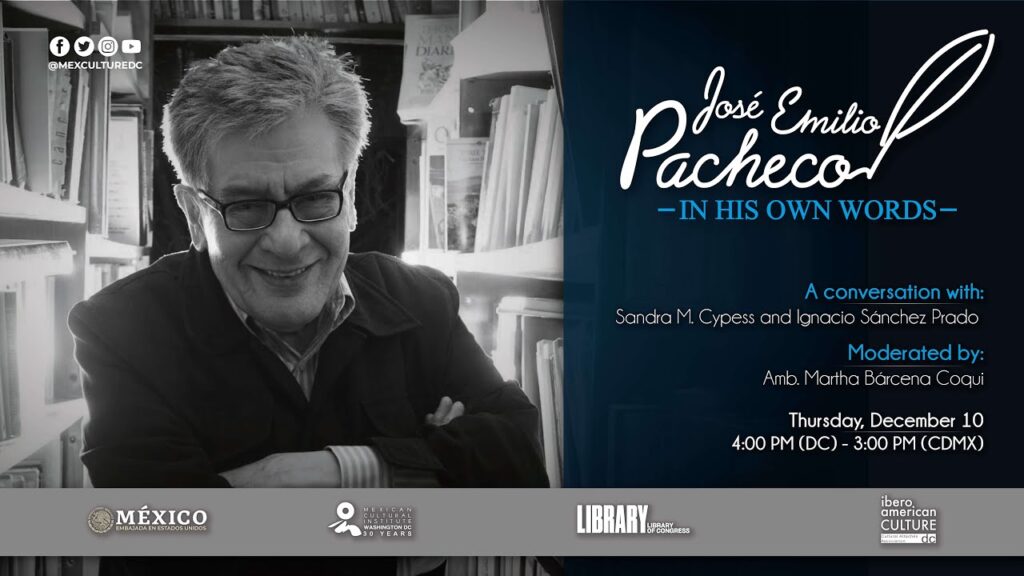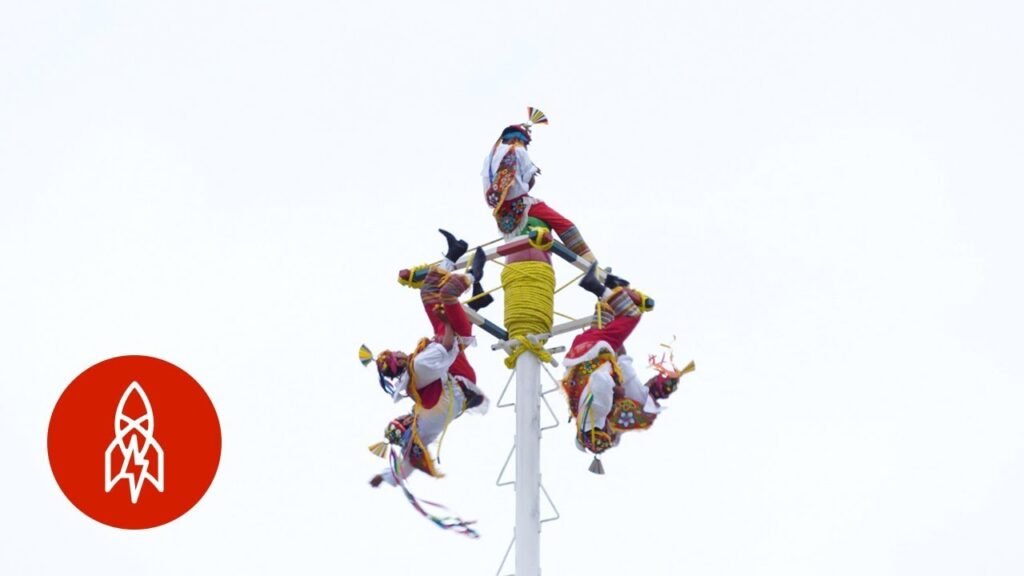Exploring the Life of José Emilio Pacheco
José Emilio Pacheco was not only one of Mexico’s most prominent poets and essayists but also a testament to the spirit of Mexican literature. His life’s work offers a unique lens into the trials and transformations within Mexican society. Born in 1939 in Mexico City, Pacheco grew up during a period of significant political and cultural changes, which deeply influenced his writing. His poetic oeuvre is a reflection of his deep commitment to exploring the human condition and the complex identity of his homeland.
Throughout his life, Pacheco was a dedicated observer of the natural world and the ephemeral nature of human existence. This sensitivity is evident in his works, where he frequently meditated on themes such as the passage of time, memory, and historical legacy. His accessible yet profound writing style allowed readers of all backgrounds to connect with the universal questions he posed about life, society, and the environment. Moreover, his academic roles and editorships at various literary journals greatly influenced generations of Mexican writers and poets.
Pacheco’s travels throughout Mexico and abroad broadened his perspectives and enriched his literary contributions. The landscapes of Mexico, from the bustling streets of Mexico City to the serene beaches of the Mexican coast, often played a vital role in setting the scene for his meticulous narratives. His capability to intertwine Mexican history, mythology, and everyday life into concise and evocative poetry garnered him numerous awards, including the esteemed Cervantes Prize in 2009. Though he passed away in 2014, his work remains a vibrant and essential part of Mexico’s cultural heritage, continuing to inspire adventure and introspection among readers and travelers alike.
Unveiling the Literary Contributions of José Emilio Pacheco
Renowned as one of Mexico’s preeminent poets and essayists, José Emilio Pacheco is a towering figure in Latin American literature. His evocative prose and poignant verse have earned him an indelible place in the hearts of readers fascinated by the interplay of history, memory, and personal experience in the literary tapestry of Mexico. Over a career that spanned more than half a century, Pacheco’s work consistently reflected the socio-political evolution of his country, making him a pivotal voice among modern Mexican writers.
Pacheco’s literary prowess was not confined to poetry alone; his forays into the world of fictional narrative were equally noteworthy. His novel, «Las batallas en el desierto», offers a mesmerizing portrayal of post-World War II Mexico City, capturing the complex transformation of Mexican society. The novel’s narration weaves a deeply personal story with larger cultural and political shifts, thus presenting an intimate chronicle that has captivated audiences both within Mexico and internationally.
Beyond his narrative and poetic achievements, Pacheco’s essays provided incisive cultural critiques and philosophical observations that have greatly influenced Mexican intellectual discourse. His commitment to exploring cultural identity and memory through language has left a profound legacy, endearing him to scholars and casual readers alike. Each essay serves as a testament to his belief in literature as a means of illuminating the broader human condition, and in doing so, José Emilio Pacheco has forever altered the landscape of Mexican letters.
Deciphering «Las batallas en el desierto»: José Emilio Pacheco’s Masterpiece
Woven into the rich tapestry of Mexican literature, «Las batallas en el desierto» stands as an iconic novella by the renowned poet and writer José Emilio Pacheco. This compelling narrative transports readers to the bustling streets of post-WWII Mexico City, offering a poignant exploration of memory, change, and the inexorable march of time. Through the eyes of a young protagonist named Carlos, Pacheco delves into themes of innocence, cultural transformation, and the complex dynamics of socio-economic change that swept through Mexico during the 1940s and 1950s.
The story of «Las batallas en el desierto» is not just about personal nostalgia but also serves as a metaphor for a nation grappling with modernization and the loss of traditional values. As Carlos navigates his infatuation with his friend’s mother and the stark realities of his surroundings, the narrative reveals the contrasts between the old and new Mexico. Pacheco masterfully captures the essence of childhood and juxtaposes it with the adults’ world’s contradictions and moral ambiguities, highlighting the dissonance between the two.
In exploring the labyrinth of Carlos’s childhood memories, Pacheco employs a language that is at once simple and evocative, foregrounding the emotive power of everyday experiences. The novella’s title, referencing the children’s games played in the desolate outskirts of the city, symbolizes the battles of Mexico as a whole—a country caught in the tension between the insular past and the encroaching influences of globalization, Americanization, and capitalism.
The influence of «Las batallas en el desierto» extends beyond literature, echoing through Mexican cultural consciousness as a testament to the enduring impact of Pacheco’s work. The novella prompts reflection on the notions of progress and cultural identity, resonating with readers who have witnessed the changing landscapes of their own cities and communities. Pacheco’s ability to distill vast socio-political concepts into a deeply personal story of love and loss has cemented the novella’s place as a cornerstone of Mexican literary heritage.
Despite its brevity, «Las batallas en el desierto» is a richly layered narrative, replete with historical references, literary allusions, and a timeless exploration of human emotions. As readers unpack the complexities of Pacheco’s masterpiece, they uncover not just the story of Carlos and his fleeting, poignant moments of longing but also a mirror reflecting the broader issues of memory, history, and cultural identity that remain poignant to this day.
The Enduring Influence of José Emilio Pacheco in Mexican Literature
One cannot delve into contemporary Mexican literature without encountering the profound impact of José Emilio Pacheco. Pacheco, a distinguished poet, essayist, and novelist, has been a defining voice in shaping modern literary discourse in Mexico. His works are essential pillars in the study of Mexican literature, resonating with the rich tapestry of Mexico’s social, historical, and cultural narratives. His unique ability to intertwine fact with fiction has set a new standard for literary excellence within the nation.
Pacheco’s literary enormity can predominantly be felt in his poetic approach to the mundane. By casting a spotlight on everyday life, Pacheco has uncovered the extraordinary within the ordinary. His poetry is celebrated for its accessibility, rejecting the convoluted verse for a more conversational tone that speaks to a wider audience. He advocates for a literature that is in service to the people, that mirrors their real-life experiences and in doing so, cements a deeper connection with his readers.
The influence of Pacheco is evident in the awards and accolades he accumulated over his career. His sharp social commentary and masterful command of language earned him prestigious recognitions such as the Cervantes Prize, often referred to as the Nobel Prize of Spanish literature. Through these honors, Pacheco’s work has gained international acclaim, showcasing the richness of Mexican expression to a global audience and elevating the status of Mexican literature on the world stage.
Moreover, Pacheco’s narratives often forged pathways to revisit and reinterpret historical events. His novel «Las batallas en el desierto» is a poignant example of this, with its incisive look at post-war Mexico through the eyes of a young boy. This work not only signified an important moment in Mexican fiction but also opened up dialogues around national identity, the complexities of modernization, and the lingering effects of colonization. Pacheco’s literary contributions have thus been instrumental in spurring intellectual exploration amongst writers and readers alike.
New generations of Mexican writers continue to draw inspiration from Pacheco’s legacy. The thematic exploration of decline, memory, and time in his writings offers a template for literary introspection. Moreover, his advocacy for environmental preservation and his critiques of human indifference in works like «El principio del placer» resonate profoundly in contemporary issues. By laying the groundwork for such thematic enquiry, José Emilio Pacheco’s influence endures as a beacon guiding the future of storytelling in Mexico.
Tracing the Journey of José Emilio Pachico: From Early Life to Literary Icon
The story of José Emilio Pachico, a name that reverberates through the corridors of Mexican literary acclaim, begins in the rural landscapes of Mexico. Born into a family with a rich cultural heritage, Pachico’s early life was steeped in the traditions and stories that form the bedrock of Mexican folklore. From the age-old tales of his abuela to the vibrant festivities that marked the calendar, his upbringing was a tapestry of experiences that would later color his much-celebrated literary works. His childhood, a mosaic of rural life and folk culture, laid the foundation for a voice that would echo far beyond his small-town origins.
As Pachico grew, so did his fascination with the written word. He delved into books with an insatiable hunger, each page turning adding layers to his understanding of the human condition. Mexico’s rich history and diverse social landscape served as a backdrop to his education, which was as informal as conversations around the marketplace as it was structured in the classrooms of his local school. In those formative years, Pachico’s pen became his compass, guiding him through the complexities of adolescence and into the realms of narrative and critique.
The transition from a curious boy to a literary icon was not just a journey marked by a growing body of work, but also by the accolades that began to follow. Pachico’s contributions to Mexican literature were recognized early in his career, with stories and poems that captured the essence of his homeland while pushing the boundaries of literary style and form. His knack for blending the magical with the mundane resonated with readers, both domestically and internationally, transforming José Emilio Pachico into a synonym for Mexican literary prowess. His narratives became an intricate dance of words and emotions, drawing in those who sought to journey through Mexico’s heart and soul as painted by Pachico’s vivid imagination.
Commemorating José Emilio Pacheco: How His Words Transformed Mexican Narratives
The literary landscape of Mexico is intricately woven with the vibrant threads of its storied past, and among those threads, the contributions of José Emilio Pacheco shine brightly. Pacheco’s body of work is a testament to the profound impact one writer can have on the narrative fabric of a nation. An accomplished poet, essayist, and novelist, Pacheco’s voice emerged as one of the most distinctive and influential in contemporary Mexican literature.
Pacheco’s keen eye for detail and subtle critique of social and political issues allowed his literature to resonate with a truthfulness that held a mirror to the Mexican society. His novel «Las batallas en el desierto» is a remarkable exploration of post-revolutionary Mexico, capturing an era of transformation and the bittersweet pangs of modernization. Through his narrative, Pacheco invited readers to reevaluate Mexican identity in the face of rapid change, forever altering the course of Mexico’s literary narrative.
Beyond the printed page, Pacheco’s influence permeated the broader cultural sphere. Jose’s poemas have become anthems for various Mexican generations, echoing through classrooms and influencing a wave of new writers to approach storytelling with the same mixture of nostalgia, critical reflection, and unapologetic candor. By intertwining personal experiences with national history, Pacheco’s work fostered a deeper understanding of Mexico’s unique cultural tapestry.
As we commemorate Pacheco, we not only celebrate his contributions to literature but also his role in shaping the Mexican perspective. His words sparked conversations, challenged the status quo, and painted Mexico in its true complexity. Today, José Emilio Pacheco’s legacy continues to inspire, his narratives urging us to see beneath the surface of everyday life and appreciate the multiplicity of stories that define Mexico.



